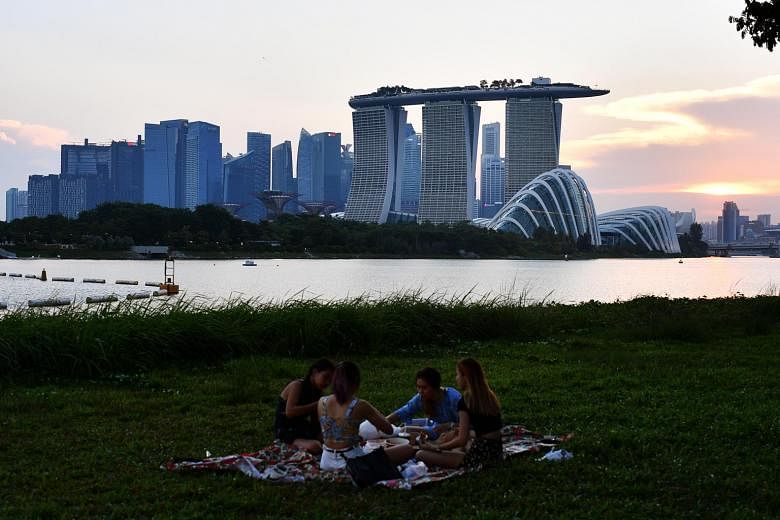SINGAPORE - The Covid-19 pandemic has affected different segments of the population to different degrees, and that is why there is now a need to renew the social compact, said National Development Minister Desmond Lee on Friday (Sept 4).
Amid this crisis, Singapore is facing difficult questions, as are many societies around the world, he added.
For instance, there have been calls to address an increasing socio-economic divide between those who have more, and those who have less, he said.
There has also been a push to re-evaluate of the value of different jobs, and how much essential workers are paid, he added.
And there have been calls to reassess the kinds of financial assistance that might be needed to mitigate income and job losses in the medium- to longer-term, he said.
Mr Lee said there has also been a renewed focus on the deep-rooted assumptions and biases in society, and how people interact with one another online and offline.
Speaking in Parliament on the final day of the debate on the President's Address, he said: "The virus has shown us, quite starkly, that none of us is safe until all of us are safe. The broader point is that our well-being very much depends on one another."
Mr Lee, who is Minister-in-charge of Social Services Integration, said President Halimah Yacob has called for this generation of leaders and Singaporeans to forge their own compact.
"If we want Singapore to stay united and strong, we must renew our shared understanding of who we aspire to be," he added.
In his speech, Mr Lee mapped out the impact of the pandemic, which he said was something that affected Singaporeans universally but its impact was not felt equally.
For instance, he said some people have jobs that allow them to work from home or are working in industries like e-commerce, which is now seeing strong demand.
Others, like essential workers such as medical staff and cleaners, do not have the luxury of working from home, and face the risk of contracting the virus at the front lines where they are required to work, he added.
Then there are those in the hardest hit sectors, like aviation, tourism, retail and food and beverage, who have taken steep pay cuts or lost their jobs, he said.
Mr Lee said there were calls by various MPs like Mr Fahmi Aliman (Marine Parade GRC) and Mr Dennis Tan (Hougang) to strengthen the social safety nets.
Prime Minister Lee Hsien Loong and Deputy Prime Minister Heng Swee Keat also highlighted during the debate how the Government has boosted social safety nets significantly as the economy matured, he said. This included introducing wage support for lower-income workers and supplementing retirement and healthcare support for seniors.
Mr Lee said the Government will commit to do more to help Singaporeans, given the greater economic uncertainties ahead as well as an ageing population.
There have been different suggestions to strengthen the social safety nets, such as introducing a minimum wage or unemployment insurance, he added, on top of current measures such as the Progressive Wage Model and Workfare.
Mr Lee said: "We will study these ideas seriously, while ensuring that our overall system remains fair and sustainable for generations to come."
However, there is also a need for Singaporeans to be part of the effort to build what he called "a community of care".
He said: "What we need is not just many helping hands, but hands that help in a more coordinated and personal way, to unlock specific shackles that constrain these individuals and families from progressing in their lives."
There is also a need for better coordination between the Government, social service agencies, grassroots and religious groups, on other ways to strengthen how social services are delivered, he added.
And in these tough times, many Singaporeans have shown that they care, Mr Lee said, citing mother-daughter pair Candi Tan, 40, and Caitlyn, seven, who distributed masks and hand sanitisers.
Mr Lee said: "Caitlyn is only seven, but Candi believes it is never too early for her daughter to learn to help others."


